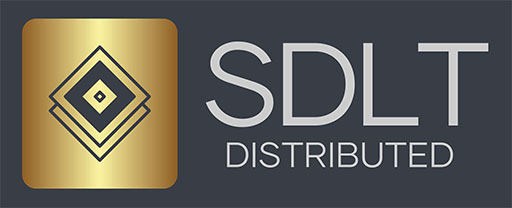
Blockchain for gaming equals way better games
Revenue of the mobile gaming market in Southeast Asia amounted to three billion USD in 2019. Over the same period, the console gaming market also accrued a healthy 400 million USD of revenue (Statista, 2021). Blockchain technology is a perfect fit for gaming as it offers several unique benefits compared to other systems. Primary advantages come from the technology’s overall transparency, with data in blockchain systems automatically written to a distributed ledger. This creates an immutable, trusted source of information at the exact point it is generated for developers, players and regulators with permissioned access. The data is timestamped so that it leaves a perfect audit trail for full traceability, resulting in substantial efficiency gains for all stakeholders in the blockchain network. In this article, SDLT explores the advantages of blockchain for gaming, from true ownership and secure exchange of in-game assets to safety for developers, fraud prevention, and ultimately better games for the players.
TRUE OWNERSHIP & SECURE EXCHANGE OF IN-GAME ASSETS
Blockchain for gaming massively improves the customer experience for players by enabling in-app purchases using cryptocurrency. By supporting the digital currency, blockchain systems enable players to buy and sell in-game assets instantaneously; no longer having to wait for third parties to process fiat currency transactions and saving on their associated charges too. Build an interesting game and players will also project real value onto digital collectables with disintermediated crypto transactions that allow players to spend in real-time. Axiom Zen launched CryptoKitties on November 28th, 2017 and players had already spent $6.7 million on the game by December 6th.
Another great benefit of blockchain is that, unlike the current gaming scenario, players truly own in-game assets. As a result, we are likely to see that rarer digital collectables will continue to drive up the revenue of the gaming sector. Blockchain smart contracts can produce rare in-game assets based on the “IF-THEN-ELSE” of certain types of interaction. In the aforementioned DApp (Decentralised Application) CryptoKitties for example, smart contracts create rarer breeds of kittens under some conditions. Digital collectables can be stored securely in players’ blockchain-based crypto wallets, alongside the cryptocurrencies they may have like Bitcoin and Ether. As long as players maintain the security of their private keys, then all of their transactions are totally safe.
SAFETY AND FRAUD PREVENTION FOR GAME DEVELOPERS & ENTREPRENEURS
The security of the blockchain is more than just transactional, in fact, the tech secures the entire development ecosystem for entrepreneurs and developers to bring their games to life. Blockchain networks are protected by modern cryptography and consensus algorithms. The nodes (participants) in the distributed ledger maintain databases in a shared manner, each with access to complete information in the data sets. There is no central server for hackers to destroy, nor any way to delete or modify blockchain-based transactions. Highly powerful data encryption techniques secure the crypto token transactions and the entire blockchain system is secured by consensus algorithms such as ‘Proof of Work’.
The completely open ledger allows participants to read all transactions and provides an extra layer of safety to minimise the risk of fraudulent activity or cyber-attacks. Even in the rare circumstances when a hacker may find a loophole in an application running on top of the blockchain network, such as a smart contract with an unfixed bug, the transparency of blockchain prevents it. Take the Ethereum DAO (Decentralised Autonomous Organisation) hack in 2016 – the Ethereum community quickly discovered a hacker exploiting a bug in their smart contract and were able to put a stop to it.
BLOCKCHAIN FOR GAMING = BETTER GAMES
Blockchain opens new territories for game developers by providing the opportunity for them to collaborate with players to improve the game. The platform is driven by community consensus, therefore opening up communication between players and developers, as opposed to developments being made in a top-down fashion. Another player or developer can propose exciting enhancements for the game, which will be made if the community agrees. Developers can’t make modifications to the game without consensus from its community of players, giving players greater control over the future of their favourite games.
Simply put, blockchain and gaming are natural partners. When you’re planning to design that next viral game, keep in mind the advantages of blockchain technology for the developers, players and regulators.
Government Steps Up Action Against Spam Calls and SMS
CREDIT : Business Standard The Union Minister of Communications and Development of North Eastern Region, Shri Jyotiraditya Scindia, shared significant details in a written reply to the Rajya Sabha, highlighting the government’s efforts to combat the persistent issue of spam calls and messages. Recent data reveals a staggering number of complaints regarding unsolicited communications, demonstrating
800% Growth in DLT Projects: Broadridge Study Shows Digital Assets Transforming Global Finance at 4X Rate
85% of respondents see intraday liquidity as the key outcome of DLT and digital assets Live industry participation with DLT has increased 800% since 2020 45% of banks issued a digital asset in the last 12 months Digital asset adoption is growing at a rate of two to four times annually , /PRNewswire/ -- Global Fintech
Unlocking Sustainable Finance through AI and Blockchain
GreenAI.earth – Unlocking Sustainable Finance through AI and Blockchain By SDLT Asia Team – Blog Post 19 March…

